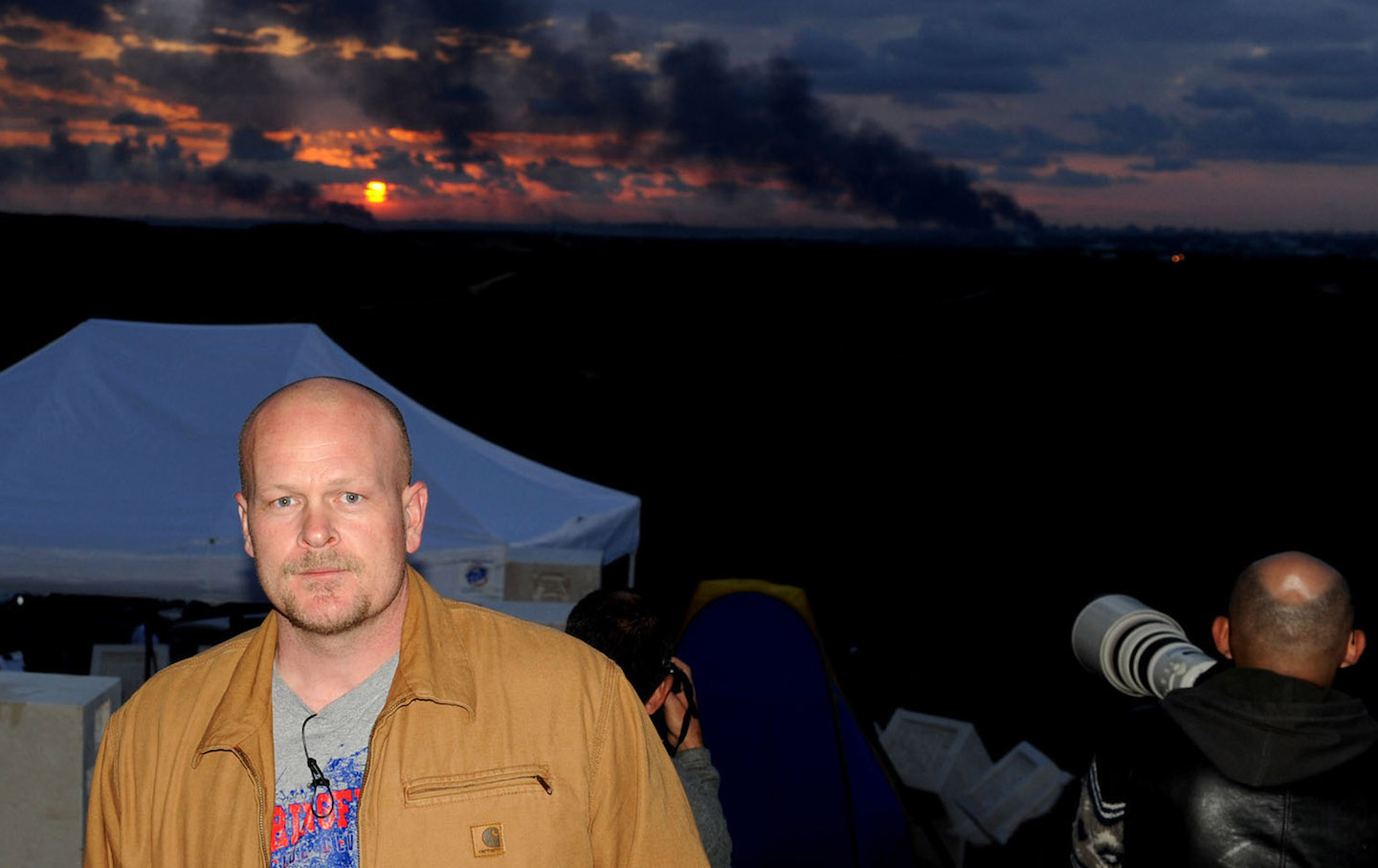Politics
/
August 29, 2023
Samuel Joseph Wurzelbacher, who died on Sunday, seemed like a footnote to the 2008 presidential campaign. But he was an augur of things to come.
As the Trump movement finds itself facing a fresh round of existential reckonings in the courts and the polls, it seems a grim portent that Samuel Joseph Wurzelbacher, aka “Joe the Plumber,” has died. Wurzelbacher came into political prominence on the eve of the final presidential debate in 2008; he happened upon Barack Obama in his Toledo, Ohio, neighborhood, and questioned the then-candidate on his tax proposals. Wurzelbacher explained that he was thinking of acquiring a plumbing business with revenues just north of $250,000—the income level at which candidate Obama was proposing to introduce marginal rate hikes. As Wurzelbacher pressed Obama on what this would mean for his personal tax burden, the Democratic nominee conceded that yes, he might see a slight increase in tax liability, but that other striving Americans and new business owners would benefit in a more equitable tax plan designed to “spread the wealth around.”
Those four fateful words were Reaganite music to the ears of John McCain’s campaign advisers. In the ensuing debate, “Joe the Plumber” was referenced 25 times, while “the economy” (a rather pressing issue just a month after the collapse of Lehman Brothers and the great recession’s onset) rated 16 mentions, Iraq just one, and Afghanistan none.
Looking back, Wurzelbacher’s moment of mass renown was a prophetic foretaste of what was to come, as the American right became fiercely rebranded as an obliging forum for white working-class grievance. The mobilization of the Tea Party, the ensuing anti-Obama backlash, and Trump’s own rise as the unlikely “populist” tribune of the neglected and despised white American interior all were presaged by the McCain campaign’s opportunistic adoption of Wurzelbacher as its pseudo-populist mascot. Significantly, Wurzelbacher was along for the ride in all these later mutations of right-leaning cultural-populist resentment. (He also promptly disavowed McCain, saying that his tour on the McCain campaign trail left him feeling “dirty” and that McCain’s support for the financial industry bailouts “appalled” him.) In 2009, he published an insta-book subtitled Fighting for the American Dream, and he mounted a failed campaign for Congress in 2012. The right’s recent rush to embrace Oliver Anthony, the country artist who recorded the viral “Rich Men North of Richmond,” is testament to the MAGA movement’s hunger for the kind of regular-folks bona fides that its big donor support and CPAC stagecraft routinely undercut.
Wurzelbacher was an augur in another sense: His overnight celebrity made it clear just how little it took for someone to claim the mantle of working-class authenticity on the right. For starters, he wasn’t actually a plumber; even though he said he’d left the Air Force as a credentialed plumber, he was working as a plumbing assistant. This distinction resulted in a number of consequences, not least that the plumbers’ union demanded that he remove the designation from his own website. The episode highlights another key right-wing résumé entry for Wurzelbacher: He was fiercely anti-union. After he ended up taking a short-lived union job at a Chrysler plant in 2014, he characterized the experience as an undercover research operation, to see how the enemy operated up close.
Wurzelbacher completed his transition to the MAGA era in 2016, becoming an early supporter of Trump. Unlike the wary corps of Never-Trumpers in the commentariat who would eventually bow to their new leader, he was an enthusiastic recruit to Trump’s pet crusades, lambasting the runaway forces of “political correctness” while backing Trump’s border wall and Muslim ban. In short, Joe the Plumber was tailor-made for the role of representing a forgotten-man brand of right-wing cultural reaction masquerading as straightforward economic grievance. The deeper logic of this crucial rhetorical transformation was neatly captured by Astra Taylor in a meditation on how “the people” are represented in American iconography and political discourse. “Conservatives don’t care about the people and have always been content to rule as a minority. They want to rule as a fragment of the people—a very rich and powerful fragment. But occasionally even they need a fig leaf,” she wrote. Wurzelbacher met that demand on several fronts, she went on to observe:
Here was the voice of the people challenging Obama’s nefarious plan to “spread the wealth” at the steep expense of heroically aspiring business owners like himself—even though his name was not Joe, but Samuel, and he wasn’t the entrepreneurial licensed plumber he claimed to be, but an uncertified plumber’s assistant. (He also had an outstanding lien for more than $1100 in unpaid back taxes, which rendered his agitprop question to Obama an impressive triple-gainer of falsehood. The penalty for this mendacious stunt was that Wurzelbacher was promptly hailed as a hero of the misunderstood working class and was elevated as a worthy, if ultimately unsuccessful, candidate for Congress himself. He still pops up in conservative media to rail about the perfidy of the libs and the glories of Donald Trump.)
Current Issue

Still, for all of Wurzelbacher’s ardent backing of the Trumpified GOP, he was an oddly isolated figure by the time of his premature death. In no small part this was because the niche he occupied in 2008 had now outlived its usefulness in a conservative movement widely, albeit wrongly, identified with the plight of white working-class Americans. Indeed, Trump’s takeover of the GOP short-circuited a good deal of the symbolic demand for working-class mouthpieces on the right: If a scion of a real estate fortune who’d forged his resurgent celebrity brand by playing an omnicompetent CEO on a reality-TV franchise could pose as the vessel of justice and “retribution” for the less-privileged forces on the American right, why, then all traditional bets were off when it came to the politics of class representation.
That’s also why Wurzelbacher’s grievance-merchant label mate from 2008, former Alaska governor and McCain running mate Sarah Palin is rarely heard from today, except when she clamors for civil war. Indeed, one of the gruesome ironies of the final arc of Wurzelbacher’s career in public life is that the anti-union worker, like all too many of his counterparts in real America, saw his job be taken over by a feckless, megalomaniacal CEO. But the ironies don’t end there: Wurzelbacher, an ardent gun-rights advocate who made a point of displaying a Luger firearm on an adjoining table during a 2018 interview with a Reuters reporter, finally did get his turn as a business entrepreneur. According to the Washington Examiner, he worked as an executive at a company called Swiftshield, “a company that makes steel barricades to protect students in the event of a mass shooting.” Fighting for the American dream, indeed.
-
Submit a correction
-
Reprints & permissions










